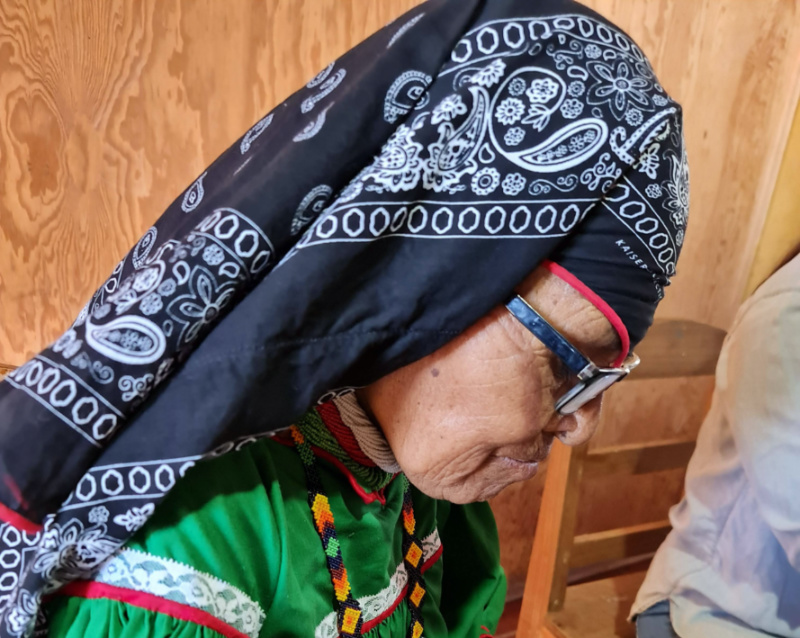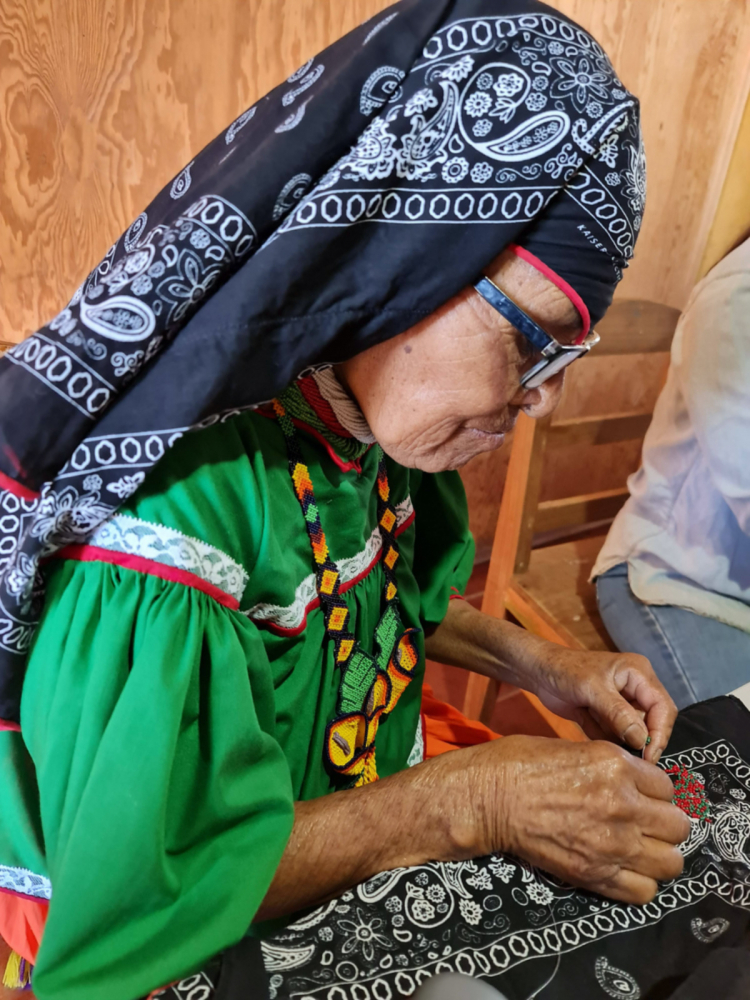
ELLIS HEASLEY, of UK-based religious freedom advocacy CSW, highlights the findings of a recent CSW report on Indigenous religious minority women in Mexico…
London, UK
“If they find a Bible, they expel the family. Those who want to hear the Word travel by foot for three days, or by car for about four hours. There is no church. There is no Bible study, not even in secret.”
This is the reality for Protestant Christians in Pedernales, a neighbourhood in the community of Santa Catarina Cuexcomatitlán in the Mezquitic Municipality of Mexico’s Jalisco state, as told by former resident Yolanda Estela de la Rosa Cruz.
“The same situation goes on and on,” she continues. “They do not want any belief other than theirs. They force you to believe what they believe. They force you to practise the customs, even if it is against what you believe, and if you do not do it, they sell your things to pay the fine, whatever thing you own.”

Yolanda Estela de la Rosa Cruz. PICTURE: Courtesy of CSW.
“[Yolanda’s] case may seem somewhat historic, but the repercussions of these experiences are significant and lasting for Yolanda and her family. Being displaced from their lands, and prevented from harvesting their crops or taking their livestock with them, means that Yolanda and her family are left with few alternatives to grow food to eat or earn a living. There are many others like her, with violations such as these persisting most severely across the states of Chiapas, Guerrero, Hidalgo, Oaxaca, and Yolanda’s home state of Jalisco.”
Yolanda is one of many women CSW spoke to for Let her be heard – a new report exploring the untold stories of Indigenous religious minority women in Mexico. She and her family were forcibly displaced from their village in 2002, and they have continued to face challenges on account of their religious beliefs for two decades now.
They were expelled, as many are, for belonging to a religious minority in a community that enforces religious uniformity and participation in the activities of the religious majority. In Yolanda and her family’s case, their conversion to Protestant Christianity prompted suspicion and hostility from members of the Wixáritari Indigenous group to which they belong, and which maintains a traditional shamanistic belief system based around the worship of spirits linked to the natural world and their ancestors.
Yolanda told CSW that anyone identified as a Protestant Christian in Pedernales de Santa Catarina is summoned to an assembly meeting in the main town square, where they are questioned, and Protestant Christians are not permitted to receive visitors of the same faith. She relayed that, in some cases, Protestant Christians who share their beliefs with others have been imprisoned, tied up, verbally harassed and sometimes beaten by traditional police.
Yolanda was denied medical treatment from visiting nurses in Pedernales de Santa Catarina, from which she and her family were subsequently expelled in 2002.
This case may seem somewhat historic, but the repercussions of these experiences are significant and lasting for Yolanda and her family. Being displaced from their lands, and prevented from harvesting their crops or taking their livestock with them, means that Yolanda and her family are left with few alternatives to grow food to eat or earn a living. There are many others like her, with violations such as these persisting most severely across the states of Chiapas, Guerrero, Hidalgo, Oaxaca, and Yolanda’s home state of Jalisco.
CSW spoke to women like Yolanda from these five states, to address the dearth of information and analysis by monitoring bodies and experts regarding the unique experiences of Indigenous religious minority women in Mexico.
Their stories paint a striking picture of a host of violations of freedom of religion or belief (FoRB) in Mexico, and while CSW found that women and men are often equally affected, there is a gendered dynamic to many of these violations.
We rely on our readers to fund Sight's work - become a financial supporter today!
For more information, head to our Subscriber's page.
For example, one of the most common types of FoRB violations in Mexico involves the denial of access to basic services, such as water and electricity, as a means of pressuring members of religious minority groups to conform to the practices of the religious majority. In many communities, this has profound impacts on women in particular, as norms often dictate that women are tasked with domestic responsibilities such as cooking, cleaning and washing clothes – all of which become extremely challenging when essential services are denied.
This type of violation can also have implications for health, with women being forced to wash, cook with and consume untreated water, for example from rivers; or having to walk significant distances to and from a water source while carrying heavy objects such as jugs of water or baskets of wet laundry.
Several participants also alluded to the knock-on effect that discrimination against religious minority children has on them as mothers, with some taking on more work on top of their regular household responsibilities, to instruct their children after they were denied access to education.
These findings highlight the value and necessity of research that documents and spotlights the stories of those who may otherwise go unheard, and it crucially emphasises the need for responses that consider the gendered and other intersectional impacts of FoRB violations.
Ellis Heasley is public affairs officer at UK-based religious freedom advocacy CSW.





